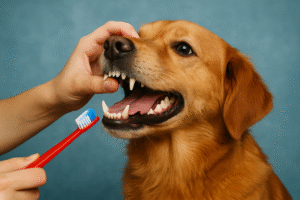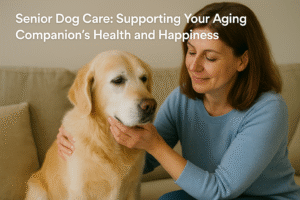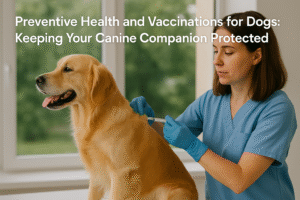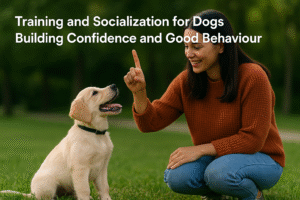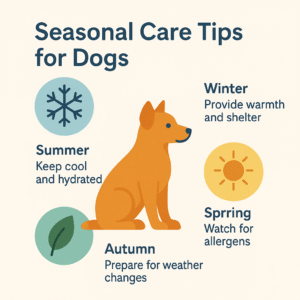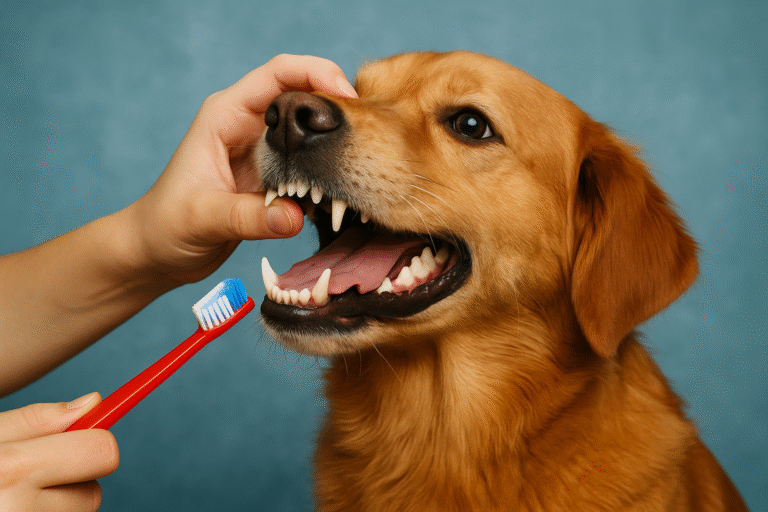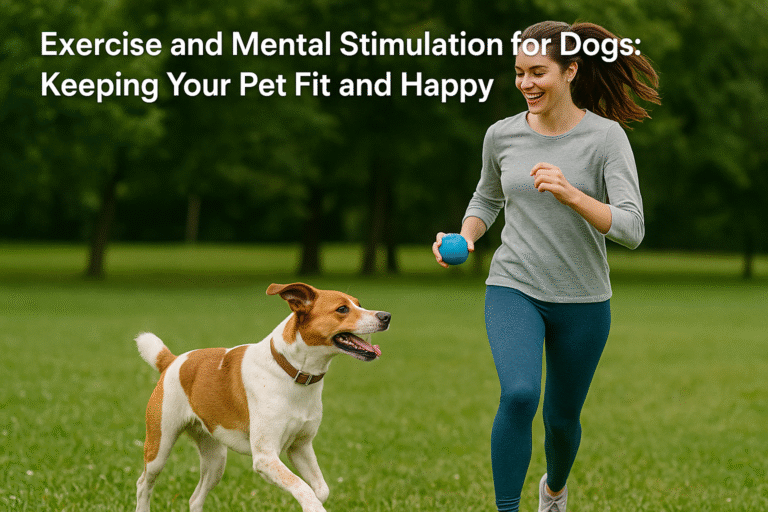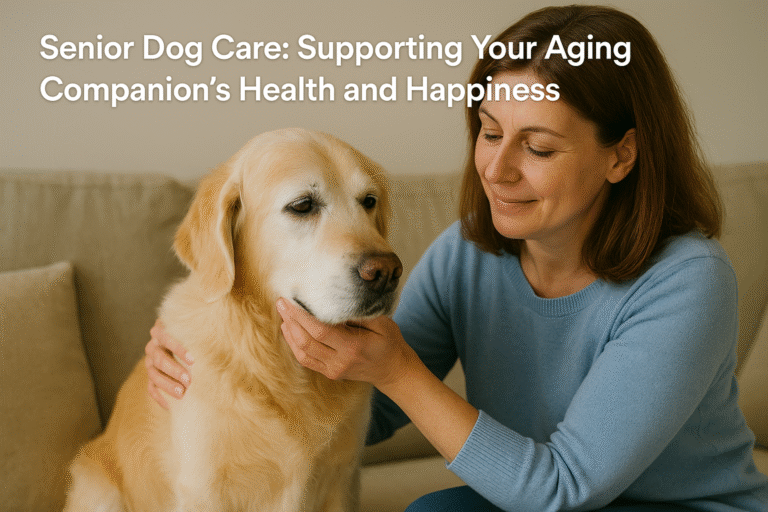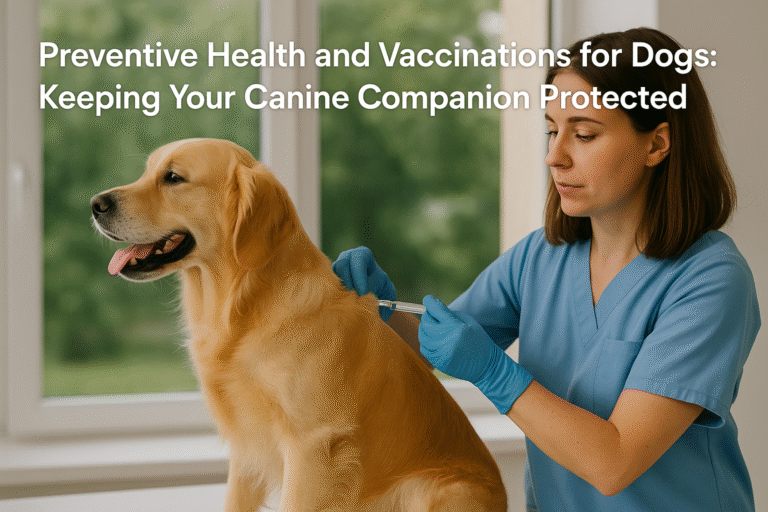Bringing a new puppy or rescue dog into your home is exciting, but it also comes with the responsibility of teaching your companion how to navigate the world confidently and politely. Training and socialization are the foundations of a well-adjusted dog. Socialization is the process of exposing a puppy to a variety of people, animals, places, sights and sounds during the formative stage of life. Veterinary behaviourists often compare socialization to a vaccine: just as vaccinations inoculate the body against disease, proper socialization inoculates a dog against fear and anxiety later in life. Without it, puppies may grow up afraid of everyday things or overreact to strangers and other dogs.
The sensitive period for socialization is roughly between three and fourteen weeks of age. During this window, puppies rapidly absorb information about their environment and form associations that can last a lifetime. Early experiences with the mother and littermates teach basic canine etiquette and bite inhibition. Responsible breeders keep puppies with their mother until at least eight weeks to allow this essential learning. When the puppy comes home, it is your job to continue the process. Introduce your dog to men, women and children of different ages, along with friendly dogs, cats and other animals in controlled, positive interactions. Gradually expose them to different surfaces (grass, gravel, tile), sounds (traffic, vacuum cleaners, thunderstorms) and environments (parks, shops, veterinary clinics). Each encounter should be pleasant and calm; bring treats and toys to pair new experiences with something positive.
When socializing, let your puppy approach new people and dogs at their own pace. Never force an anxious puppy to face their fears. If your dog shows signs of stress like cowering, tucking the tail or growling, calmly end the session and try again later in a quieter environment. The goal is to build confidence by teaching your dog that the world is safe. There is a common myth that puppies must not leave the house until they complete their vaccine series, but waiting can cause more harm than good. The sensitive socialization period will have passed, and your dog might develop lasting fears. Experts suggest balancing health and behavioural needs by choosing safe, low-risk environments—meeting fully vaccinated dogs at a friend’s house or inviting people to your home—while following your veterinarian’s vaccine schedule.
Socialization isn’t just for puppies; adult dogs also benefit. Rescue dogs may have missed early experiences, so start slowly and build trust. Provide plenty of rewards and avoid overwhelming them. Enrolment in a well-run obedience or manners class can help them practice around other dogs under professional guidance. Always work at a level where your dog remains calm and engaged.
Beyond socialization, basic training teaches your dog how to live harmoniously with your family. Modern training emphasises positive reinforcement—rewarding good behaviour with treats, praise or play. Avoid harsh punishments that can damage trust and cause fear. Begin with core cues such as “sit” “down” “stay” “come” and “leave it.” Keep sessions short (five to ten minutes) and fun; end on a success. Use consistent cues and reward promptly so your dog understands the connection. Teaching self-control and focus will carry over to all other behaviours.
House training is an early priority. Establish a routine for meals, play, and trips outside. Supervise your puppy indoors, take them out after waking, eating or playing, and praise them when they eliminate outside. Use a crate or gated area to prevent accidents when you can’t supervise; dogs naturally avoid soiling their sleeping area. Clean any indoor accidents thoroughly to prevent repeat offences. With patience and consistency, most puppies learn quickly.
Loose-leash walking and polite greetings make walks enjoyable. Teach your dog that pulling does not get them where they want to go—stop walking when the leash is tight and resume when it relaxes. Reinforce walking beside you with treats and praise. For greetings, ask your dog to “sit” before meeting people; reward calm behaviour and ask friends to ignore your dog if they jump. Over time, they’ll learn that good manners bring attention and affection.
Recall (“come”) is vital for safety. Practice in a fenced area, starting on a long line. Call your dog with an enthusiastic tone, reward them generously when they run to you, and never punish them after they come. Gradually add distractions and distance. Teach an emergency recall by using a special word that always predicts an irresistible reward, like a favourite toy or high-value treat.
Mental stimulation is just as important as physical exercise. Provide puzzle toys, hide treats for nose work, teach new tricks, and rotate toys to keep things fresh. Dogs enjoy using their brains to solve problems and work for rewards. Nose work and scent games, in particular, channel a dog’s natural abilities and build confidence. Interactive play and training sessions strengthen your bond.
If behavioural challenges arise—such as fear aggression, separation anxiety or excessive barking—consult a professional trainer or veterinary behaviourist. Many problems can be managed through behaviour modification and medication, but early intervention is key. In addition, keep training sessions positive and end on success to avoid frustration.
Socialization and training are lifelong processes. Continue exposing your dog to new experiences throughout their life to prevent regression. Vary your walking routes, enrol in agility or obedience classes, or teach new tricks. Balanced social interactions and clear communication allow your dog to thrive, making them a confident, well-mannered companion.
By investing time in socialization and training, you not only prevent problem behaviours but also create a stronger bond with your dog. The world can be confusing for our canine friends; it is our responsibility to guide them patiently. Whether you have a new puppy or an adult rescue, start today with positive experiences, consistent cues and plenty of praise. If you have any questions about training or would like to book a session, Contact us. We’re here to help you and your dog enjoy a lifetime of happiness together.



